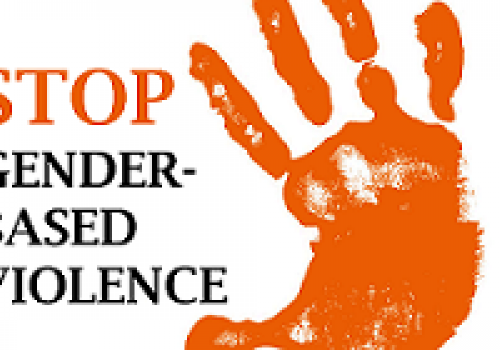Gender Based Violence (GBV) continues to feature in humanitarian settings as well as in refugee settings across the Southern African Development Community (SADC) Region and is commonly characterised by sexual violence, child marriage domestic violence, coerced prostitution, trafficking for sexual exploitation and forced labour, all perpetuated by social and systematic structures.
The Dialogue coincided with the launch of the commemoration of 16 Days Activism against GBV whose theme this year is "Orange the World: End Violence against Women Now!"
Mr Mandla Madumisa, Chief Director, Asylum Seeker Management, Department of Home Affairs, Republic of South Africa, as Chair of the Organ on Politics, Defence and Security, said it is important that SADC remains cognisant that women and girls remain highly vulnerable to all forms of sexual and physical violence. In addition to the dangers women face from contesting armed groups when moving from conflict zones, they are also at risk of being brutalised by human traffickers or border security forces.
He said even after exiting the conflict zone, safety can be elusive. Staying in a refugee settlement or seeking protection can bring serious threats to women's security, freedom and health, and it is critical that key actors deliberate and concert their efforts to ensure coordinated, effective and efficient service delivery.
Mr Madumisa noted that the SADC Secretariat has been relentless in implementing priority actions stipulated in the Regional GBV Blueprint with other sectors such as the police as well as prisons services to ensure that a whole of system approach is ensured. In addition, the African Union Humanitarian Policy Framework also sets out the mandate of Regional Economic Communities in humanitarian contexts, one of which is to build resilience to natural and human-induced disasters, especially those that undermine human security and sustainable development.
The framework is anchored on international humanitarian law and includes the principle of gender mainstreaming under which all actions must consider the gender dimension of humanitarian action and it calls on State Parties to develop and implement strategic frameworks, programme that is inclusive of State and Non-State-Actors.
He expressed appreciation to the European Union for the support rendered through the 11th European Delegation Fund on the Support to Peace and Security in the SADC Region (SPSS) Programme, which among others, supports the fight against Sexual Gender Based Violence (SGBV). SPSS aims to strengthen the peace and security architecture in areas of conflict prevention and resolution and public and human security.
SADC Senior Officer Public Security, Ms. Kealeboga Moruti, said SADC is very keen to deliberate on GBV in humanitarian and forced displacement settings in order to strengthen responses and action as well as policy formulation for vulnerable citizens. Ms Moruti highlighted that the role of Regional Economic Communities in addressing GBV is to provide strategic expertise and co-ordinate the harmonisation of policies and strategies to offer guidance to response efforts.
Mr Pablo Valenzuela, Programme Officer for Peace, Security and Governance at the EU Delegation to the Republic of Botswana and SADC, said the Dialogue is another example of how SADC is committed to gender issues He noted the several tools that have been developed under the framework of the Support to Peace and Security in Southern Africa (SPSS) programme which play a significant role in consolidating efforts to fight GBV. He highlighted the commitment by the EU to protect and fulfil girls' and women's rights and cited the EU-UN 'Spotlight Initiative' which demonstrates the commitment to eradicating all forms of violence against women and girls.
The EU is guided by regional frameworks through the promotion and domestication of SADC's Protocol on Gender and Development and through the SADC regional strategy on combating GBV. This is possible thanks to the implementation of the SPSS which has received €15 million from the EU.
Mr Guy-Rufin Guernas, Senior Protection Coordinator for United Nations High Commission for Refugees (UNHCR) Bureau of Southern Africa, said GBV is one of the major social disasters in the life of human beings.
He said the management of GBV in the humanitarian context is confronted by several challenges such as insufficient data collection that should serve as the basis for analysis of the causes, the trends, the identification of the perpetrators and survivors and the best way to plan and implement prevention and response to the phenomenon.
Weak actions in legal redress and socio-economic response compared to the medical and psychosocial response cause either the national legal systems to be imperfect or financial resources to be non-existent to support victims in their reintegration into a social and economic life. GBV prevention and response are mainly focused on survivors, leaving perpetrators to continue committing the offences, he said.
Despite the challenges, Mr Guernas said SADC is better capacitated to handle the management of GBV in the Region as the organisation and Members States have adopted the Protocol on Gender and Development which provides a comprehensive definition of GBV, and elaborated the Regional Indicative Strategic Development Plan that can adequately address the socio-economic response to GBV, should appropriate financial resources be allocated to that end. SADC also has an elaborate Regional Strategy and Framework of Action for addressing GBV, which is the basis to guide the overall SADC actions in this sector.
He said these tools show the political will and commitments of the Member States to effectively combat this unhuman phenomenon that undermines the full respect of human rights in the Region.
The Dialogue was attended by representatives from state and non-state actors and refugee commissioners from SADC Member States who unpacked the unique dynamics, service provision, challenges and best practices as well as the rate of inclusion of GBV services in national services.

